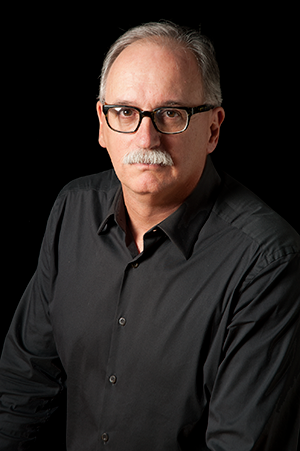Books
Personality
Author Talk: Jim Shepard

Jim Shepard is the author of four short-story collections and seven novels, including The Book of Aron, winner of the 2016 Harold U. Ribalow Prize as well as the Sophie Brody Medal for Achievement in Jewish Literature from the American Library Association and the PEN/New England Award for fiction. Shepard, an Italian Catholic whose wife’s father was Jewish, spent more than two years conducting exhaustive research for his latest book, culminating in a trip to Warsaw to “find out what I didn’t know I didn’t know.” The author, 59, lives with his wife and three children in Williamstown, Mass. This interview was edited for clarity and brevity.
What prompted you to write The Book of Aron?
An old student sent me a link about Janusz Korczak, the Polish doctor, educator and writer who ran a Jewish orphanage in Warsaw. I’d known Korczak’s story, since as someone who’d always been drawn to catastrophe, especially manmade catastrophe, I’d read about the Holocaust as a child. But I’d never considered writing fiction about him, since I’ve always been wary about writing from the point of view of great men or women, especially figures who might be considered saintly. I’m more interested in fiction that dismantles our sense of ourselves. But I reread Korczak’s Ghetto Diary, and I came across an anecdote about a dying mother who told her 10-year-old son she was going to stay alive until she could get him safely into Korczak’s orphanage. She miraculously hung on until there was an opening, at which point she died, and her son never forgave Korczak. And I thought about what a horribly conflicted position that must have been for the child: Imagine being the person who made a saint’s life harder.
That sense of knowing how you should behave and being unable to do it—of not adequately appreciating what you have been given, and in so doing making it harder for the people you love and admire—that was a conflict I could relate to.
What draws you to tackling greater themes through the eyes of a child?
I think the liminal space adolescents occupy—in some ways an adult and in some ways not—is richly rewarding in terms of conflict. I’ve always been fascinated by the way a child is likely to feel more responsibility than control when confronting his or her world. Because of that, a child is likely to find him or herself drawn into complicity with the more powerful, and such complicity can move us into areas we never imagined we might stray. In this case, I was also interested in the ways in which the impossible facts of the Holocaust make children of us all.
Even Aron’s friends and family find him a difficult person to like, yet the reader roots for him. How did you find that balance in writing him?
I was struck, when encountering the primary documents I used, with how often there would be offhanded references to the way in which children in a family would get pigeonholed: ‘He’s the intellectual one; she’s the reliable one.’ I remembered how my teachers would do that: ‘I expected that of you, Biff, but I never expected it of you, Jim.’ Thinking about how often I found myself struggling against expectations that seemed self-fulfilling helped me inhabit sympathetically a boy who seemed to always be letting people down. I also never lost sight of the way many of us are keenly aware of that gap between who we want to be and who we end up being.
What’s next for you?
The usual: more catastrophe of various sorts. A new collection of stories, The World to Come, comes out in February 2017. After that, I may just lie face down on the floor for a while.
Joanne Sydney Lessner is the author of the novel Pandora’s Bottle and writes reviews and features for Opera News and ZEALnyc.










 Facebook
Facebook Instagram
Instagram Twitter
Twitter
Leave a Reply